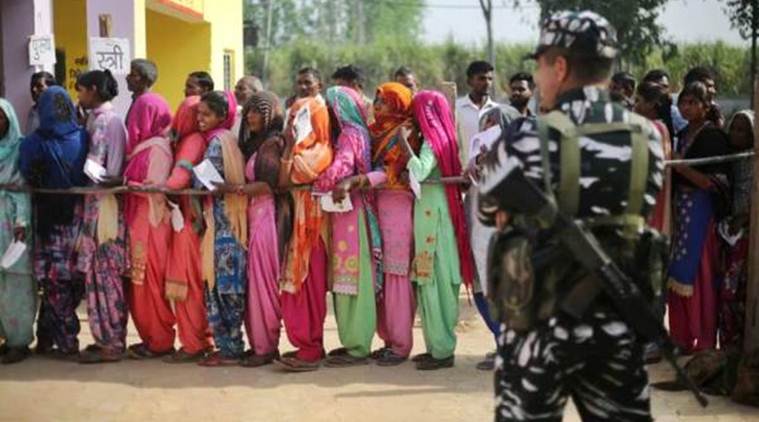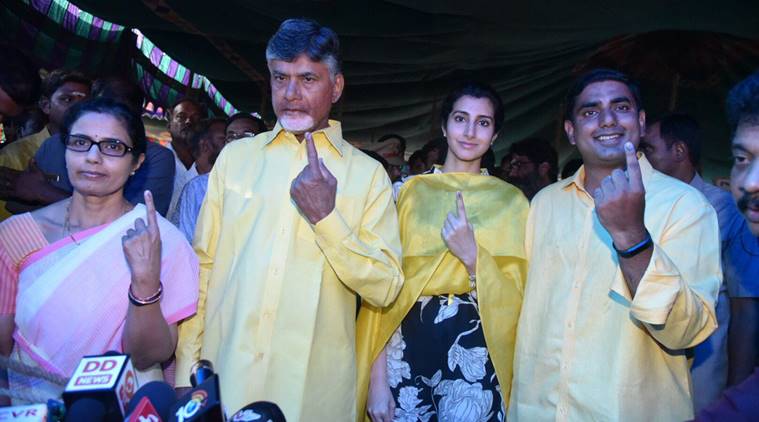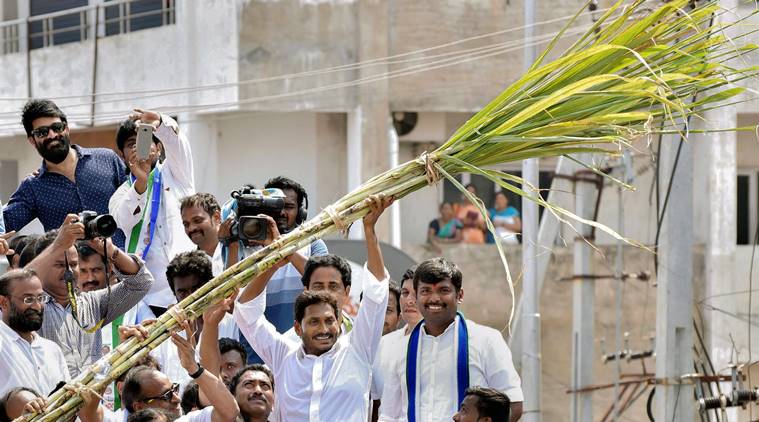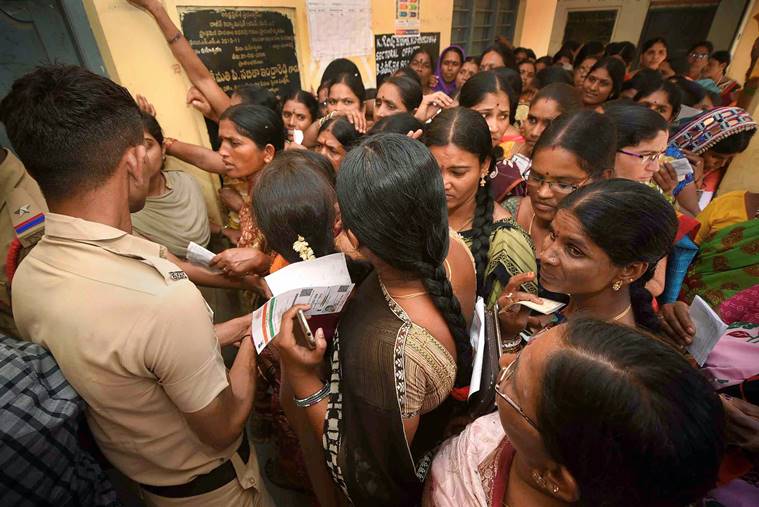
The parliamentary elections in Andhra Pradesh is quite unprecedented in many ways. The voting percentage of 76.6 per cent does not capture the energy or enthusiasm of the voters. Large number of Andhra voters came in from Hyderabad and Telangana to vote in Andhra Pradesh and created traffic jams across the route. Many hopped onto buses, trains from Tamil Nadu and Kerala and all roads led to Andhra Pradesh. Voters in Andhra Pradesh braved the intense heat to turn up at the polling booths.
They all turned up to vote and at some places found that EVMs were malfunctioning. Some places, the EVMs started working after an hour, some places it took three hours. The election commission says not more than 400 odd EVMs were malfunctioning while TDP claimed that 30 per cent had some kind of malfunction. Around 92,000 EVMs were deployed across the state.
Video: Chandrababu Naidu’s vision is required for Andhra, he won’t go to Delhi: Nara Lokesh
There is only one reason why people turn up to vote in large numbers. It is mostly to throw out an incumbent government. It is also the one reason, for people who don’t normally turn up to vote, to now turn up. Not only did they turn up, they stood for a long time in queue, did not get disheartened when they are told that they cannot vote because of EVM error, went back home to return again to vote and then in some extreme cases waited till 11 pm in the night to vote. Some booths in the state had recorded voting till 11 pm.
Also Read | Andhra Pradesh elections: Nara Lokesh works hard to weave a success story in gateway to new capital
Such enthusiasm is uncommon. It mostly happens when there is a huge anti-incumbency wave. It could also happen when the election is so polarised that voters, social groups and communities think that unless they go out and vote for their leader, he would be defeated and that would mean a sudden disruption to their group or party interests.
Or there is also the outlier case when the voter is suddenly pleased with the incumbent government, due to some dole or giveaway and wants to return the favour. Also perhaps he/she is worried that it might not continue if the other government comes through. This could also be an incentive to come out and vote, though pro-incumbent voting with vehemence is not seen as normal behaviour.

So we can see it from two perspectives; the grievance vote and the gratitude vote. The grievance vote is the anti-incumbency vote where the voter wants to throw out the incumbent government and the gratitude vote where the voter wants to show his gratitude for some benefit that he has received.
Naidu for his part says that there was silent revolution and women participated actively, unlike previous elections. He said that the women and elders had voted in favour of TDP.
Naidu’s confidence stems from the fact that around 97 lakh women’s self-help group members in villages and towns have received around Rs 10,000 each and this would add to the TDP kitty. For the elderly, he has recently raised the old age pension from Rs 1,000 to Rs 2,000. He is perhaps banking on the ‘gratitude’ vote. Reports talk of enthusiastic voting by women and elderly in this election.
Jagan for his part is confident. Reacting on the high polling percentage, Jagan said it was a positive sign for YSR Congress and added that it would be a landslide in their favour. He is confident of the grievance vote pushing out Naidu.

In the case of Andhra, Naidu started the day with saying that 30 per cent of EVM’s were malfunctioning and alarmed his voters stating that there were reports that ‘if one votes for TDP, votes are going to Jagan’. He later on sounded less alarmist to talking about EVM malfunctions in general and how they inconvenienced voters, and later on getting a bit confident stating that despite such irritants, since women and the elderly showed up in large numbers, it is a positive vote for him.
Jagan for his part has no complaints against the EVMs. He is confident from the word go that he is sweeping the state. He is sure that the unprecedent crowds that he attracted during his campaign have all voted for him. He talks of a landslide in his favour.

There is one more unexplained factor. In some parts of the state, reports say that women and elderly refused to share their voting preferences after voting. Normally if it is an angry vote, they would be more than happy to share their feelings, atleast after voting.
Grievance or gratitude vote? One needs to wait till May 23 to find out.